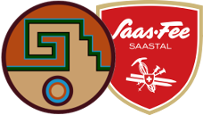Speaker
Description
ATLAS is one of the generic-purpose experiments observing hadron
collisions at the LHC at CERN. Its trigger and data acquisition system
(TDAQ) is responsible for selecting and transporting interesting
physics events from the detector to permanent storage where the data
are used for physics analysis. The transient storage of ATLAS TDAQ is
the last component of the online data-flow system. It records selected
events at several GB/s to non-volatile storage before transfer to the
offline facilities. The transient storage is a distributed system
consisting of high-performance direct-attached storage servers
accounting for 480 hard drives. A distributed multi-threaded C++
application operates the hardware. Reliability and efficiency of this
system are critical for the operations of ATLAS and TDAQ.
As part of the transient storage workflow, checksums of the recorded
data files are calculated. The checksums are used throughout the
offline data management and data distribution system to guarantee the
integrity and correctness of the raw data. This paper presents the
current multi-threading strategy of the transient storage software and
the associated trade off between compute and storage hardware
resources. We then introduce a novel multi-threaded checksum
computation strategy. We discuss the key concepts of the
implementation with a focus on the importance of overhead
minimization. Finally the paper reports on the tests performed on the
production system to demonstrate the validity of the implementation. A
30 % increase in the overall throughput performance will be
demonstrated and discussed in the view of future LHC and ATLAS upgrades.




